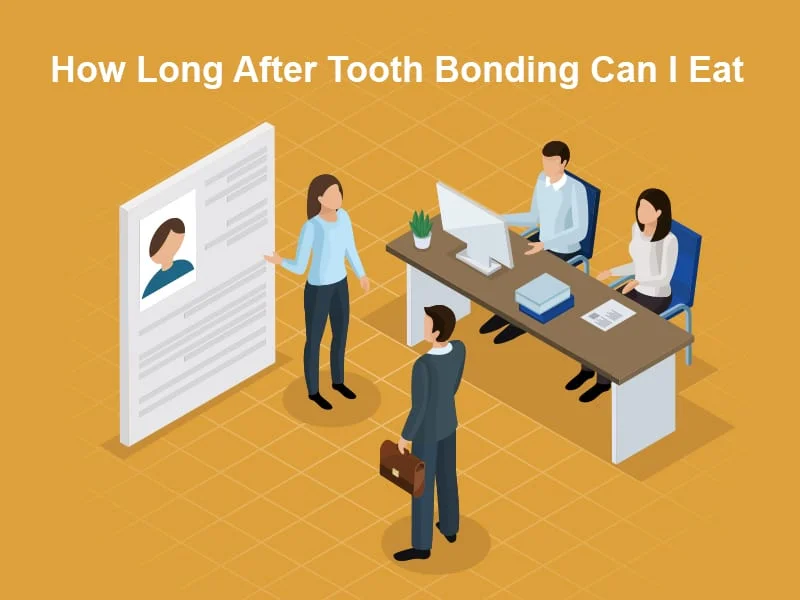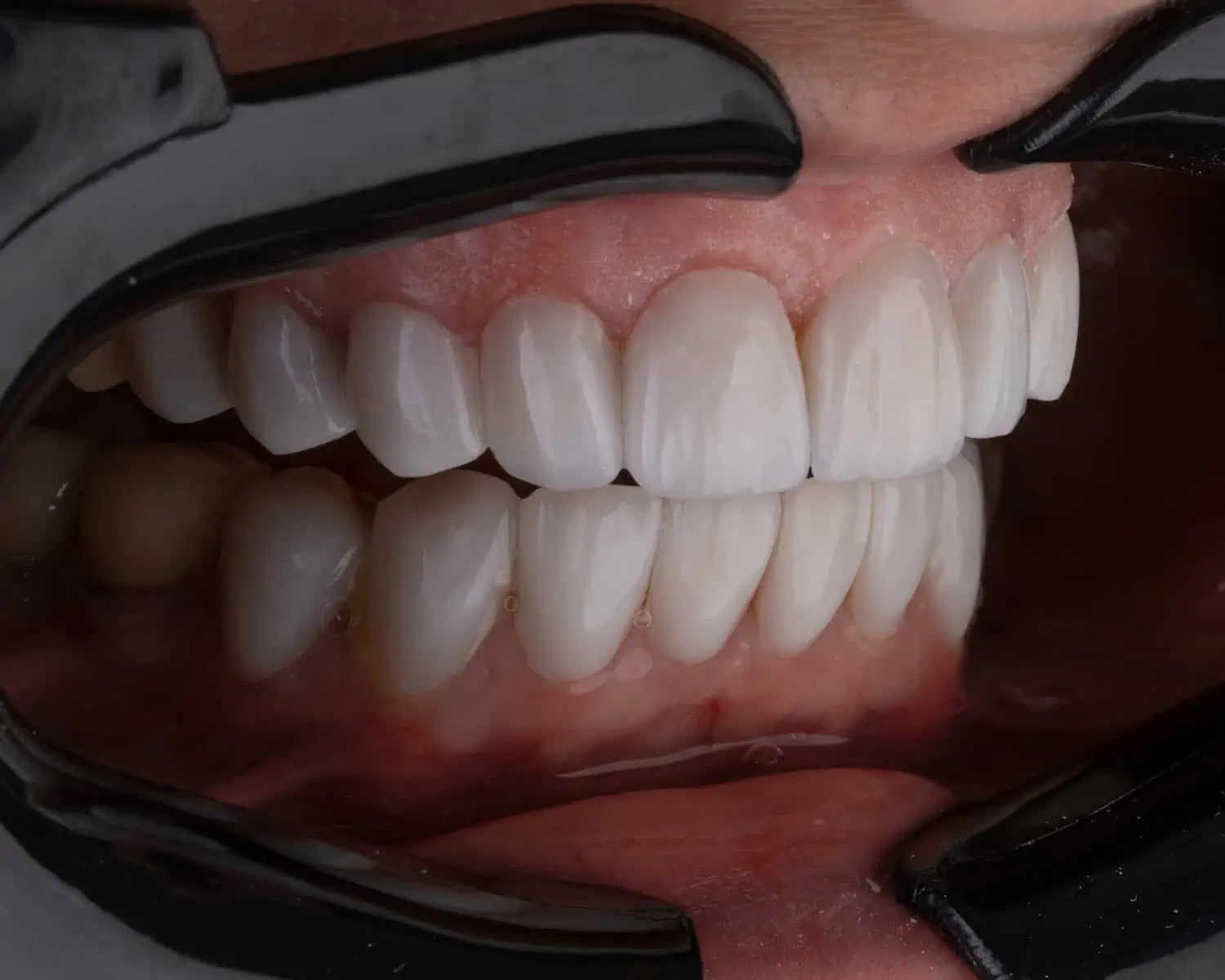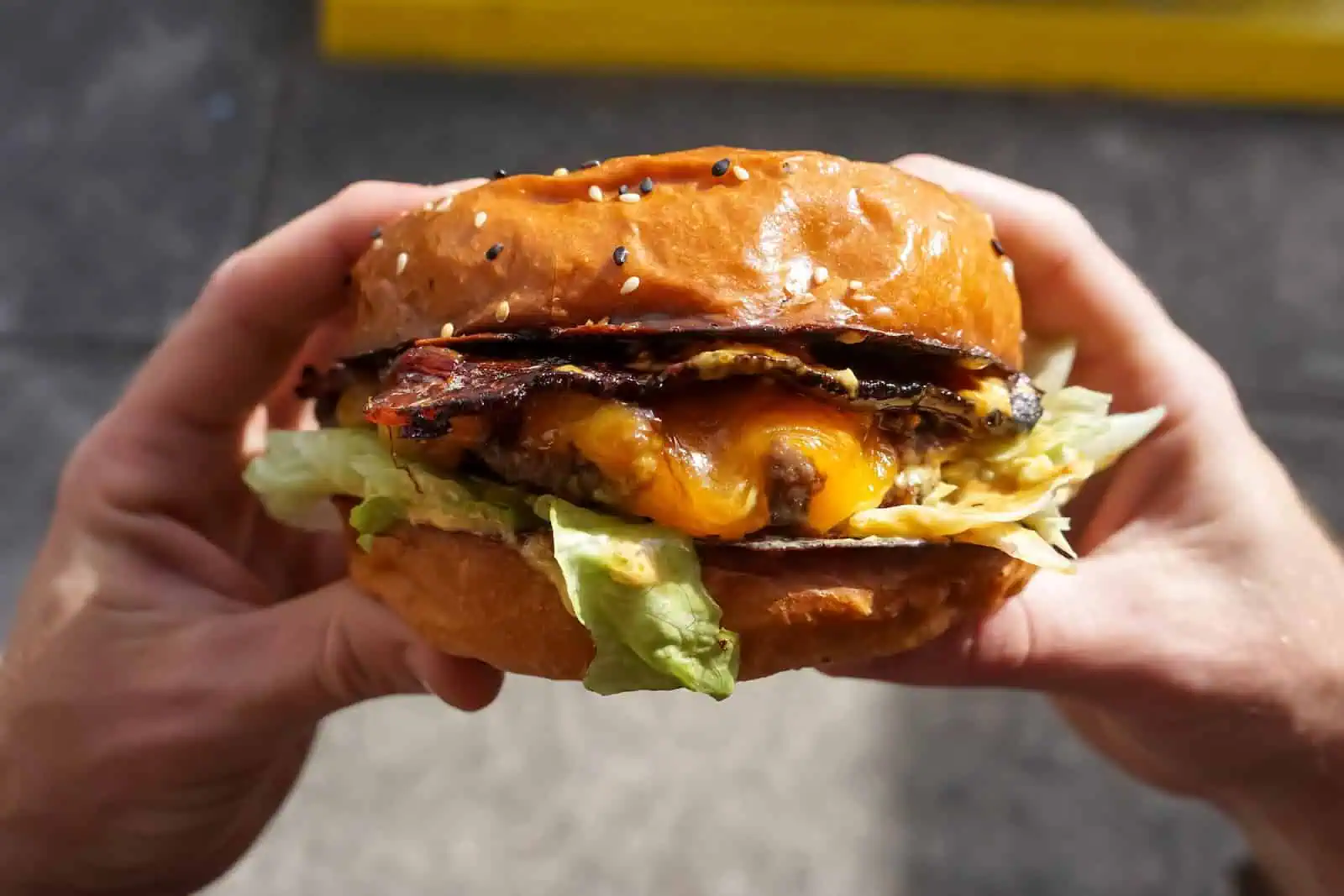Exact Answer: Immediately (Soft Diet).
Tooth bonding is a dental procedure which is done to restore the original shape and structure of an individuals teeth. In this procedure, a resin (plastic) of the tooth’s color is fixed to restore a chipped, decayed or fractured tooth. This procedure is called as tooth bonding because the material bonds to the tooth.
Tooth bonding is one of the most simple and cheapest dental procedures. The plastic resin is mended and polished to match the rest of the teeth. Generally, bonding is used as a cosmetic procedure to restore the color of the discolored tooth, chipped tooth or to fill the gaps between two teeth and thereby result in a beautiful smile!

How Long After Tooth Bonding Can One Eat?
It is recommended to go on a soft diet at least for the first 24 hours after the bonding. This is so that the resin attached can be fixed properly and is not disturbed by the pressure applied on the teeth while eating hard food.
The teeth may also experience some sensitivity after the bonding procedure which can be irritating. So it is recommended that for at least the first 24 hours one must go on a soft diet eg. ice-cream, juices etc. After the first 24 hours one must consider the level of the sensitivity and start eating regular food after thinking about the condition of the teeth.

How much time to wait before eating after tooth bonding:
| Type Of Food | Time |
| Soft Food | Immediately |
| Normal Food | 24 Hours |
| Hard Food | After a few days |
Before the tooth bonding procedure:
Before the procedure takes place it is important to think about the area of the tooth bonding. If the process is to be done on the front teeth then it will be seamless as the front teeth of all the teeth receive the lowest pressure while biting/chewing. Also the process is easily done on the tooth which require minor mends.
But the patient need not worry about these things the dentist will look into it and decide which type of bonding to go ahead with.
During the tooth bonding procedure:
Before the procedure begins the dentist will take into account on whether the tooth to be operated is too close to the gums or the skin and decide whether or not to make the area to be operated numb.
If it is made numb then the patient will not feel a thing. But if the area is not made numb then too it is nothing to worry about as you will feel very less or no sensation during the procedure.
After the tooth bonding procedure:
There is no significant care to be taken after the bonding procedure. Although the teeth might feel a little weird, that is nothing to be worried about. The mouth is very sensitive to changes and takes some time to adjust with any new changes.
The teeth may also feel a little sensitive, so it is recommended to go on a soft diet for some time after the procedure.
After all this hassle you will finally have a beautiful smile!
Why Should One Wait for Some Time to Eat After Tooth Bonding?
There is no specific reason as to why one should wait some time to eat after tooth bonding procedure, but it is good that one has a filling meal before the procedure and avoids to eat (at least hard food) for some time after the procedure. This is because the teeth become very sensitive after the procedure and one might feel discomfort.

If one does not feel sensitivity and senses that the tooth is now fixed can start eating normal food, although it is better to take the dentists opinion before starting to go on normal diet. Generally sensitivity lasts for around 24 hours- 48 hours after any dental procedure and as a precaution to increase the strength and for the resin to fix properly it is recommended that one must have a soft diet for the first 24 hours and after that take care of the teeth by not applying too much pressure on the teeth.
If you feel like eating something then you can go ahead with soft food like ice-cream, juice, milk etc.
Conclusion
To conclude it is not necessary to not eat anything after tooth bonding procedure but it will be good if one has a soft diet for 24 hours after the procedure. It must also be taken care that a lot of pressure is not applied on the teeth for some days. And after all the hard work one will get the result of a beautiful SMILE!